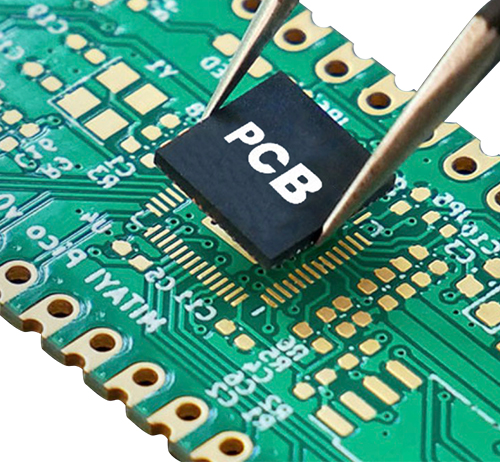Time:2022-12-07 Visit:
The process of using resin plug holes in circuit boards is often due to BGA parts, because the traditional BGA may do VIA wiring from the PAD to the back of the PAD, but if the BGA is too dense and the VIA cannot go out, it can directly do via wiring from the PAD hole to the other layer, and then fill the hole with resin and copper plating to become PAD, which is also known as the VIP process. If you only do via on the PAD without using resin plug holes, It is easy to cause tin leakage, leading to short circuit on the back and empty soldering on the front.

The manufacturing process of the resin plug hole of the circuit board includes drilling, electroplating, plug hole, baking, and grinding. After drilling, the hole is plated, and then the resin is inserted for baking. Finally, the resin is ground flat. Since the resin after grinding does not contain copper, it needs to be coated with copper again to turn it into PAD. These processes are done before the original PCB drilling process, that is, the hole to be plugged is treated first, and then other holes are drilled, Follow the normal process.
If the plug hole of the circuit board is not plugged properly, and there are bubbles in the hole, because the bubbles are easy to absorb moisture, the PCB of the circuit board may burst when passing through the tin furnace. However, if there are bubbles in the hole during the process of plugging, the bubbles will extrude the resin during baking, resulting in the situation that one side is concave and the other side is protruding. At this time, the defective products can be detected, and the circuit board with bubbles may not burst, because the main reason for bursting is moisture, Therefore, if the boards that have just left the factory or have been baked during loading, generally speaking, they will not cause bursting.